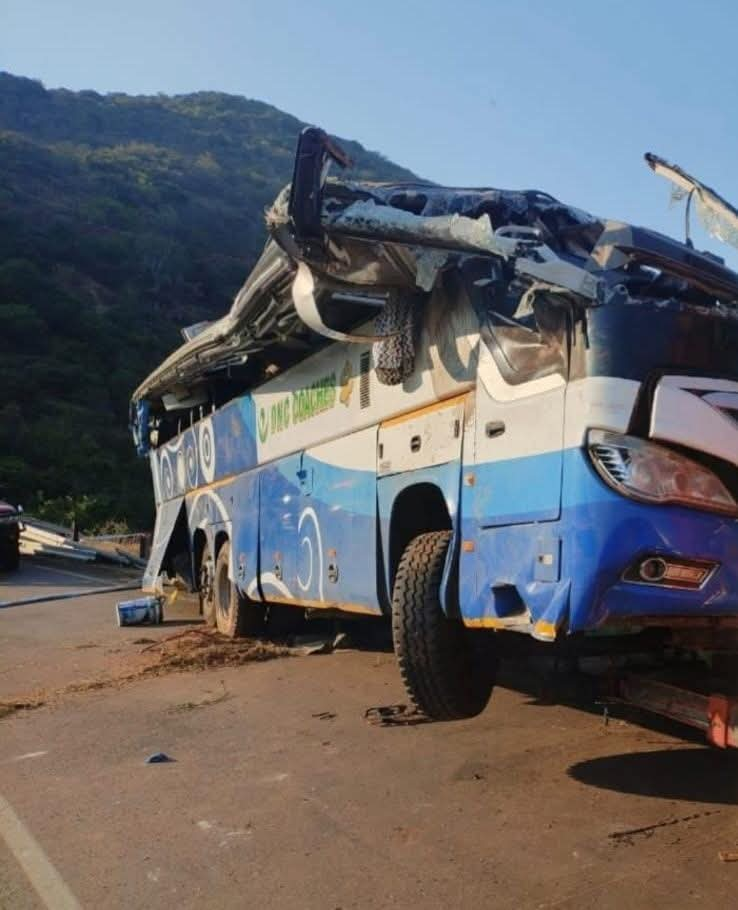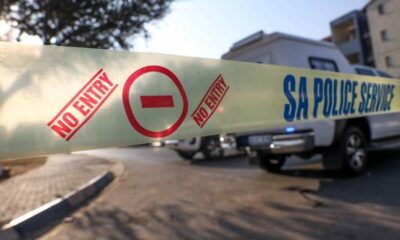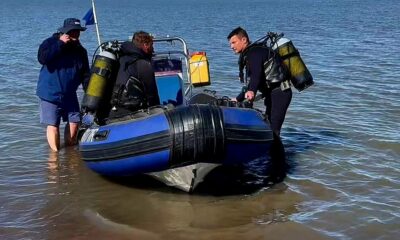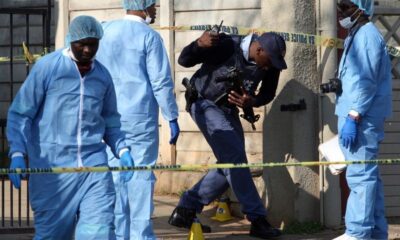News
Medication Mystery Deepens After Limpopo Bus Crash as Police Launch Probe

Police Probe Medication Found at Limpopo Bus Crash Scene
Shock, Speculation and a New Twist to a Deadly Tragedy
The Limpopo bus disaster that claimed 43 lives on the N1 near Makhado has taken an unexpected turn. While investigators are still piecing together what caused the crash, police have now opened an official inquiry after bottles of what appears to be medication were found scattered among the wreckage.
Provincial police commissioner Lieutenant General Thembi Hadebe confirmed that Makhado police are now looking into the origin of the medication, and whether its possession may violate South Africa’s drug laws. The discovery was made just a few kilometres outside the town, where the bus veered off a mountainous stretch of road and plunged into an embankment.
Police Zero In On Possible Drug Law Violations
According to SAPS spokesperson Colonel Malesela Ledwaba, the investigation is being guided by Section 22A of the Medicines and Related Substances Act, which strictly regulates possession of scheduled medicines.
“Legally, someone is only permitted to possess and carry the quantity of medicine prescribed by an authorized prescriber. Carrying a large quantity of medicine without exception is illegal,” Ledwaba said.
The owner of the bottles has not been identified, and police are appealing for the individual to come forward. They’ve urged anyone with information to contact their nearest police station, call SAPS on 08600 10111 or use the My SAPS app.
BronCleer Images Ignite Anger and Misinformation
Footage broadcast by news channels showed bottles resembling BronCleer a codeine-based cough syrup often associated with illicit trade, strewn among passengers’ belongings. Those visuals immediately sparked online outrage, with some social media users accusing foreign nationals of smuggling or looting South Africa’s health system.
But health authorities have been quick to shut down those claims.
On Tuesday, officials reiterated that BronCleer is not part of any public healthcare facility’s stock. Tshegofatso Mashabela, Tshwane MMC for Health Services, said the medication is “a controlled substance, not procured or distributed by state-run hospitals or clinics.”
This comes just days after a bust in Kimberley uncovered unregistered medicines including BronCleer allegedly being sold by unlicensed traders.
Cross-Border Routes Under Scrutiny
The bus involved in the crash was reportedly travelling from Gqeberha to Zimbabwe and Malawi, a route commonly used by migrant workers and informal traders. Authorities have not linked the medication directly to any passengers, but the find raises questions about cross-border trafficking, informal transport networks and weak regulation of scheduled drugs.
Community members along the N1 say they’ve seen buses loaded with everything from groceries to building materials.
“These buses carry people and their entire lives bags, parcels, stock for resale,” said a roadside vendor in Louis Trichardt. “You can’t assume anything just from luggage.”
A National Conversation on Codeine Control
Beyond the tragedy itself, the crash has reopened debate about South Africa’s struggle with over-the-counter codeine misuse. BronCleer has long been controversial for its abuse in homemade concoctions like “lean” or “purple drank”, and is frequently found in illegal cross-border markets.
Health activists argue that regulation is only half the battle without stricter enforcement at roadblocks and borders.
Mourning Continues as Answers Are Sought
As families in South Africa, Zimbabwe and Malawi begin the painful process of mourning and identifying bodies, officials are urging the public to avoid speculation.
For now, the medication inquiry is running parallel to the main crash investigation. Whether the bottles are linked to passengers, informal traders or something more sinister remains unclear, but authorities say they are treating the matter with urgency.
What is certain: this tragedy, one of the deadliest in recent years, has exposed not just road safety failures, but the shadow economy that often travels alongside the country’s busiest highways.
{Source: IOL}
Follow Joburg ETC on Facebook, Twitter , TikTok and Instagram
For more News in Johannesburg, visit joburgetc.com



























